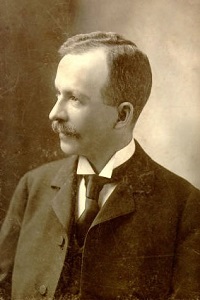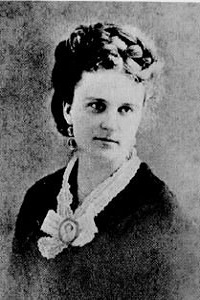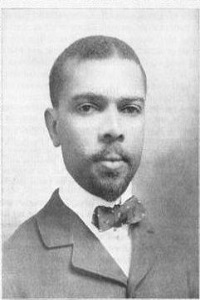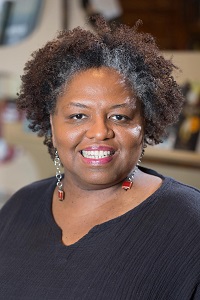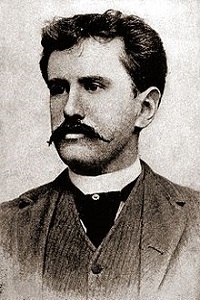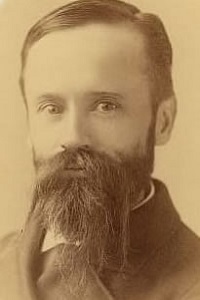The Audio Library of
Classic Southern Literature
1676 to 1923
Made possible by 
Visit our Children's literature site 
Narrative of the Life of Frederick Douglass, Chapter 7
Written Text
I lived in Master Hugh's family about seven years. During this time, I
succeeded in learning to read and write. In accomplishing this, I was
compelled to resort to various stratagems. I had no regular teacher. My
mistress, who had kindly commenced to instruct me, had, in compliance
with the advice and direction of her husband, not only ceased to
instruct, but had set her face against my being instructed by any one
else. It is due, however, to my mistress to say of her, that she did
not adopt this course of treatment immediately. She at first lacked the
depravity indispensable to shutting me up in mental darkness. It was
at least necessary for her to have some training in the exercise of
irresponsible power, to make her equal to the task of treating me as
though I were a brute.
My mistress was, as I have said, a kind and tender-hearted woman; and in
the simplicity of her soul she commenced, when I first went to live with
her, to treat me as she supposed one human being ought to treat another.
In entering upon the duties of a slaveholder, she did not seem to
perceive that I sustained to her the relation of a mere chattel, and
that for her to treat me as a human being was not only wrong, but
dangerously so. Slavery proved as injurious to her as it did to me. When
I went there, she was a pious, warm, and tender-hearted woman. There was
no sorrow or suffering for which she had not a tear. She had bread for
the hungry, clothes for the naked, and comfort for every mourner that
came within her reach. Slavery soon proved its ability to divest her of
these heavenly qualities. Under its influence, the tender heart became
stone, and the lamblike disposition gave way to one of tiger-like
fierceness. The first step in her downward course was in her ceasing to
instruct me. She now commenced to practise her husband's precepts. She
finally became even more violent in her opposition than her husband
himself. She was not satisfied with simply doing as well as he had
commanded; she seemed anxious to do better. Nothing seemed to make her
more angry than to see me with a newspaper. She seemed to think that
here lay the danger. I have had her rush at me with a face made all up
of fury, and snatch from me a newspaper, in a manner that fully revealed
her apprehension. She was an apt woman; and a little experience soon
demonstrated, to her satisfaction, that education and slavery were
incompatible with each other.
From this time I was most narrowly watched. If I was in a separate room
any considerable length of time, I was sure to be suspected of having
a book, and was at once called to give an account of myself. All this,
however, was too late. The first step had been taken. Mistress, in
teaching me the alphabet, had given me the _inch,_ and no precaution
could prevent me from taking the _ell._
The plan which I adopted, and the one by which I was most successful,
was that of making friends of all the little white boys whom I met in
the street. As many of these as I could, I converted into teachers. With
their kindly aid, obtained at different times and in different places,
I finally succeeded in learning to read. When I was sent of errands, I
always took my book with me, and by going one part of my errand quickly,
I found time to get a lesson before my return. I used also to carry
bread with me, enough of which was always in the house, and to which I
was always welcome; for I was much better off in this regard than many
of the poor white children in our neighborhood. This bread I used to
bestow upon the hungry little urchins, who, in return, would give me
that more valuable bread of knowledge. I am strongly tempted to give
the names of two or three of those little boys, as a testimonial of the
gratitude and affection I bear them; but prudence forbids;--not that
it would injure me, but it might embarrass them; for it is almost an
unpardonable offence to teach slaves to read in this Christian country.
It is enough to say of the dear little fellows, that they lived on
Philpot Street, very near Durgin and Bailey's ship-yard. I used to talk
this matter of slavery over with them. I would sometimes say to them, I
wished I could be as free as they would be when they got to be men. "You
will be free as soon as you are twenty-one, _but I am a slave for life!_
Have not I as good a right to be free as you have?" These words used
to trouble them; they would express for me the liveliest sympathy, and
console me with the hope that something would occur by which I might be
free.
I was now about twelve years old, and the thought of being _a slave for
life_ began to bear heavily upon my heart. Just about this time, I got
hold of a book entitled "The Columbian Orator." Every opportunity I
got, I used to read this book. Among much of other interesting matter,
I found in it a dialogue between a master and his slave. The slave was
represented as having run away from his master three times. The dialogue
represented the conversation which took place between them, when the
slave was retaken the third time. In this dialogue, the whole argument
in behalf of slavery was brought forward by the master, all of which was
disposed of by the slave. The slave was made to say some very smart as
well as impressive things in reply to his master--things which had the
desired though unexpected effect; for the conversation resulted in the
voluntary emancipation of the slave on the part of the master.
In the same book, I met with one of Sheridan's mighty speeches on and
in behalf of Catholic emancipation. These were choice documents to me.
I read them over and over again with unabated interest. They gave tongue
to interesting thoughts of my own soul, which had frequently flashed
through my mind, and died away for want of utterance. The moral which I
gained from the dialogue was the power of truth over the conscience of
even a slaveholder. What I got from Sheridan was a bold denunciation
of slavery, and a powerful vindication of human rights. The reading
of these documents enabled me to utter my thoughts, and to meet the
arguments brought forward to sustain slavery; but while they relieved
me of one difficulty, they brought on another even more painful than
the one of which I was relieved. The more I read, the more I was led
to abhor and detest my enslavers. I could regard them in no other light
than a band of successful robbers, who had left their homes, and gone to
Africa, and stolen us from our homes, and in a strange land reduced
us to slavery. I loathed them as being the meanest as well as the most
wicked of men. As I read and contemplated the subject, behold! that very
discontentment which Master Hugh had predicted would follow my learning
to read had already come, to torment and sting my soul to unutterable
anguish. As I writhed under it, I would at times feel that learning to
read had been a curse rather than a blessing. It had given me a view
of my wretched condition, without the remedy. It opened my eyes to the
horrible pit, but to no ladder upon which to get out. In moments of
agony, I envied my fellow-slaves for their stupidity. I have often
wished myself a beast. I preferred the condition of the meanest reptile
to my own. Any thing, no matter what, to get rid of thinking! It was
this everlasting thinking of my condition that tormented me. There was
no getting rid of it. It was pressed upon me by every object within
sight or hearing, animate or inanimate. The silver trump of freedom
had roused my soul to eternal wakefulness. Freedom now appeared, to
disappear no more forever. It was heard in every sound, and seen in
every thing. It was ever present to torment me with a sense of my
wretched condition. I saw nothing without seeing it, I heard nothing
without hearing it, and felt nothing without feeling it. It looked from
every star, it smiled in every calm, breathed in every wind, and moved
in every storm.
I often found myself regretting my own existence, and wishing myself
dead; and but for the hope of being free, I have no doubt but that I
should have killed myself, or done something for which I should have
been killed. While in this state of mind, I was eager to hear any one
speak of slavery. I was a ready listener. Every little while, I could
hear something about the abolitionists. It was some time before I found
what the word meant. It was always used in such connections as to make
it an interesting word to me. If a slave ran away and succeeded in
getting clear, or if a slave killed his master, set fire to a barn, or
did any thing very wrong in the mind of a slaveholder, it was spoken of
as the fruit of _abolition._ Hearing the word in this connection very
often, I set about learning what it meant. The dictionary afforded me
little or no help. I found it was "the act of abolishing;" but then I
did not know what was to be abolished. Here I was perplexed. I did not
dare to ask any one about its meaning, for I was satisfied that it was
something they wanted me to know very little about. After a patient
waiting, I got one of our city papers, containing an account of the
number of petitions from the north, praying for the abolition of slavery
in the District of Columbia, and of the slave trade between the States.
From this time I understood the words _abolition_ and _abolitionist,_
and always drew near when that word was spoken, expecting to hear
something of importance to myself and fellow-slaves. The light broke in
upon me by degrees. I went one day down on the wharf of Mr. Waters;
and seeing two Irishmen unloading a scow of stone, I went, unasked, and
helped them. When we had finished, one of them came to me and asked
me if I were a slave. I told him I was. He asked, "Are ye a slave for
life?" I told him that I was. The good Irishman seemed to be deeply
affected by the statement. He said to the other that it was a pity so
fine a little fellow as myself should be a slave for life. He said it
was a shame to hold me. They both advised me to run away to the north;
that I should find friends there, and that I should be free. I pretended
not to be interested in what they said, and treated them as if I did not
understand them; for I feared they might be treacherous. White men have
been known to encourage slaves to escape, and then, to get the reward,
catch them and return them to their masters. I was afraid that these
seemingly good men might use me so; but I nevertheless remembered their
advice, and from that time I resolved to run away. I looked forward to
a time at which it would be safe for me to escape. I was too young to
think of doing so immediately; besides, I wished to learn how to write,
as I might have occasion to write my own pass. I consoled myself with
the hope that I should one day find a good chance. Meanwhile, I would
learn to write.
The idea as to how I might learn to write was suggested to me by
being in Durgin and Bailey's ship-yard, and frequently seeing the ship
carpenters, after hewing, and getting a piece of timber ready for use,
write on the timber the name of that part of the ship for which it was
intended. When a piece of timber was intended for the larboard side, it
would be marked thus--"L." When a piece was for the starboard side, it
would be marked thus--"S." A piece for the larboard side forward, would
be marked thus--"L. F." When a piece was for starboard side forward,
it would be marked thus--"S. F." For larboard aft, it would be marked
thus--"L. A." For starboard aft, it would be marked thus--"S. A." I soon
learned the names of these letters, and for what they were intended when
placed upon a piece of timber in the ship-yard. I immediately commenced
copying them, and in a short time was able to make the four letters
named. After that, when I met with any boy who I knew could write, I
would tell him I could write as well as he. The next word would be, "I
don't believe you. Let me see you try it." I would then make the letters
which I had been so fortunate as to learn, and ask him to beat that.
In this way I got a good many lessons in writing, which it is quite
possible I should never have gotten in any other way. During this time,
my copy-book was the board fence, brick wall, and pavement; my pen and
ink was a lump of chalk. With these, I learned mainly how to write. I
then commenced and continued copying the Italics in Webster's Spelling
Book, until I could make them all without looking on the book. By this
time, my little Master Thomas had gone to school, and learned how to
write, and had written over a number of copy-books. These had been
brought home, and shown to some of our near neighbors, and then laid
aside. My mistress used to go to class meeting at the Wilk Street
meetinghouse every Monday afternoon, and leave me to take care of the
house. When left thus, I used to spend the time in writing in the
spaces left in Master Thomas's copy-book, copying what he had written. I
continued to do this until I could write a hand very similar to that of
Master Thomas. Thus, after a long, tedious effort for years, I finally
succeeded in learning how to write.
